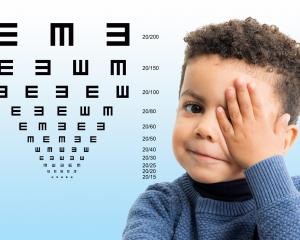

New Zealand dental care for adults demonstrates the worst features of a private healthcare market. Excellent care is provided to people who can afford it, with very good technology and little waiting time. But people who can’t afford dental care have to go without, or only get emergency care, and their oral health can be extremely bad, leading to a range of other problems. For people on low incomes, Winz can contribute towards urgent care, and in some places dental care is available through hospitals to people with community services cards.
In the latest NZ Health Survey around half of the people surveyed (53%) said they only went to the dentist for problems, or did not go at all. Maori, Pacific people, those on low incomes and people with mental health problems often miss out on dental care. People in rural areas without dentists also struggle. Late last year I was in a rural healthcare centre a couple of hours north of Gisborne when a young woman with severe dental pain turned up. She had managed to get an appointment with a dentist in Gisborne but had no transport so couldn’t get to the appointment.
In a recent paper in the Journal of the Royal Society of New Zealand, John Broughton and his colleagues wrote about the dental health of Maori with mental health problems. They interviewed 32 people and asked about their oral health and its impact on their lives, using a standard questionnaire that has been used in many studies. People reported that their oral health was causing them psychological and physical pain and disability and affecting their social interactions.
The researchers then arranged for the participants to have their teeth fixed. The list of what was done to bring their dental care up to scratch shows how little dental care they had received over the preceding years. Two participants didn’t have any teeth at all. One of these had never had dentures and the other had lost them about five years ago. One participant had had an upper denture made 20 years ago, but no followup treatment, so the denture needed to be relined. A total of 21 teeth were extracted from 10 people. Fifty-six restorations were placed, and 20 people required treatment for gingivitis or periodontal treatment. On average participants required three appointments, but some had up to six. Not surprisingly, getting all this necessary dental work done had a big impact on participants. They experienced lower levels of pain, discomfort, and disability, and it is likely that the treatment led to increased mental as well as physical health.
The study makes clear that there is a very large burden of serious untreated dental problems in the community, and suggests that people with mental health problems should be a priority group for receiving dental care. The authors point out that Maori ways of thinking about health stress the connections between physical, mental, family and spiritual health. In this case, it is really clear that poor physical health, like not having many (or any) teeth, or having pain or infection from bad teeth, are likely to lead to other health and social problems.
- Pauline Norris is a research professor at the Centre for Pacific Health, Va’a O Tautai, and CHeST: the Centre for Health Systems and Technology, in the University of Otago Division of Health Sciences.












